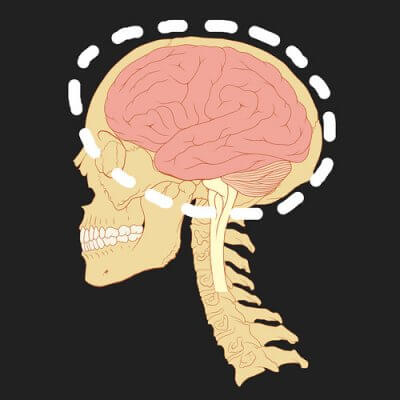Why is Cognitive Behavioural Therapy (CBT) So Popular?

By: J E Theriot
by Emma Bender
Whether you’re considering therapy for the first time or have tried different approaches before, you’ve likely heard of CBT. It’s one of the most recommended and widely available therapies in the UK, but what exactly makes it so popular?
Why is cognitive behavioural therapy (CBT) so popular with people seeking counselling? What are the limitations of this form of therapy? And is it suitable for you?
Is CBT therapy new?
Not really. CBT has been around since the 198os, when cognitive therapy (which focused on changing moods by examining our thoughts) began to be combined with behavioural therapy (which looks at how thoughts influence our actions and choices).
In the UK, CBT really gained momentum in 2005, when the government committed to making psychological therapies more accessible. CBT was chosen as the primary treatment for depression and anxiety within public healthcare.
So what made CBT the front-runner, and why has it remained one of the most widely used forms of talk therapy?
1. Accessibility.
A major reason for CBT’s popularity is its accessibility. In 2007, the UK government allocated £173 million to train an additional 3,600 CBT therapists. This led to it becoming widely available on the NHS and through private clinics.
Many health insurance providers also began including CBT in their coverage, further increasing access.
2. Rapid Results and Affordability.
CBT is typically short-term and focused, with many people experiencing results in just a few months. This makes it more affordable than more longer-term therapies.
In his accessible book Brilliant Cognitive Behavioural Therapy, Dr. Stephen Briers explains how CBT’s principles can be learned relatively quickly, giving people tools they can apply for life.

By: Alper Çuğun
3. A Skills-Based Approach.
CBT equips you with practical techniques to tackle negative thinking and behavioural patterns. Once learned, these skills can be used long after therapy ends, helping you manage future challenges independently, without fostering emotional dependence on a therapist.
4. Backed By Research.
CBT is one of the most researched forms of therapy. Studies have shown its effectiveness in treating:
- Depression (including major depressive disorder)
- Generalised anxiety disorder (GAD)
- Social phobia
- Panic disorder
- PTSD
- Bulimia
There’s also emerging evidence that CBT may help with:
- OCD
- Anorexia nervosa
- Bipolar disorder
- Substance misuse (e.g. cocaine)
- Sexual difficulties
According to the Royal College of Psychiatrists, CBT is often as effective as antidepressants when treating certain types of depression. NICE (The National Institute for Health and Care Excellence) recommends CBT as a first-line treatment for mild to moderate depression.
 5. Measurable Progress.
5. Measurable Progress.
CBT includes techniques for tracking change. For example, clients might rate the intensity of anxiety or negative thoughts on a scale from 1 to 10. As therapy progresses, lower ratings can demonstrate measurable, even if subjective, progress.
This focus on observable change can make CBT feel more scientific or results-driven than some other therapies.
6. It can prevent recurrent episodes of depression.
Around 90% of people who experience an acute episode of depression may face recurrence over a 15-year period (Nierenberg, Petersen & Alpert, 2003). CBT can help reduce relapse by giving individuals strategies to cope with stress, negative thinking, and emotional triggers when they reappear.
Is it a quick fix, then?
CBT can lead to faster results than many traditional therapies, but it’s not a magic solution. Like any therapy, it requires commitment and effort.
That said, the coping tools you develop can serve you well for a lifetime, which helps explain why it continues to grow in popularity.
Curious About CBT?
If you’re considering CBT, it can be a powerful tool, especially if you’re looking for a practical, skills-based approach to change. At Harley Therapy, we’ll help match you with the right therapist, whether CBT or another approach is the best fit.
Explore our CBT practitioners and book an initial session.
References/ Further Reading
- All you need is cognitive behaviour therapy? Jeremy Holmes, 2001. https://www.ncbi.nlm.nih.gov/pmc/articles/PMC1122202/.
- Cognitive-Behavioral Therapy for Generalized Anxiety Disorder – What CBT is and Why it Works William Meek, 2001 https://gad.about.com/od/treatment/a/cbt.htm
- Royal College of Psychiatrists https://www.rcpsych.ac.uk/mentalhealthinformation/therapies/cognitivebehaviouraltherapy.aspx.
- Depression, online factsheet published by Bupa’s health information team, April 2008. https://hcd2.bupa.co.uk/fact_sheets/html/depression.html.
- Q and A with David Clark , professor of psychology at King’s College London and director of the Centre for Anxiety Disorders and Trauma at Maudsley Hospital.
- The Big Question: Does cognitive therapy work – and should the NHS provide more of it for depression? Jeremy Laurence Health Editor, The Independent.
- https://www.independent.co.uk/life-style/health-and-families/health-news/the-big-question-does-cognitive-therapy-work-ndash-and-should-the-nhs-provide-more-of-it-for-depression-1925439.html.
- Nierenberg, A. A. Petersen ,T.J. Alpert, J. E. (2003) Prevention of Relapse and Recurrence in Depression: The Role of Long-Term Pharmacotherapy and Psychotherapy, The Journal of Clinical Psychiatry Vol 64, 15 At https://www.psychiatrist.com/pcc/pccpdf/v05s09/v64s15.pdf.
- Briers, S. (2009) Brilliant Cognitive Behavioural Therapy, Harlow: Pearson Education Limited.




